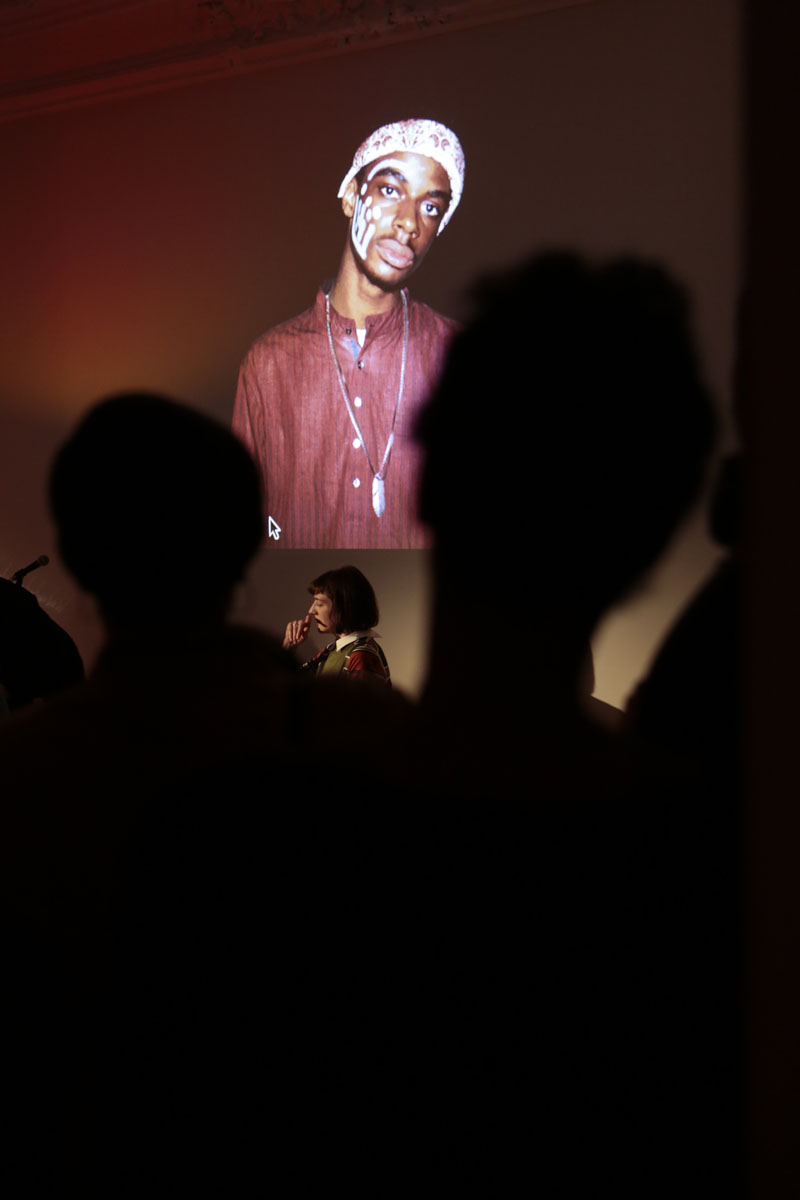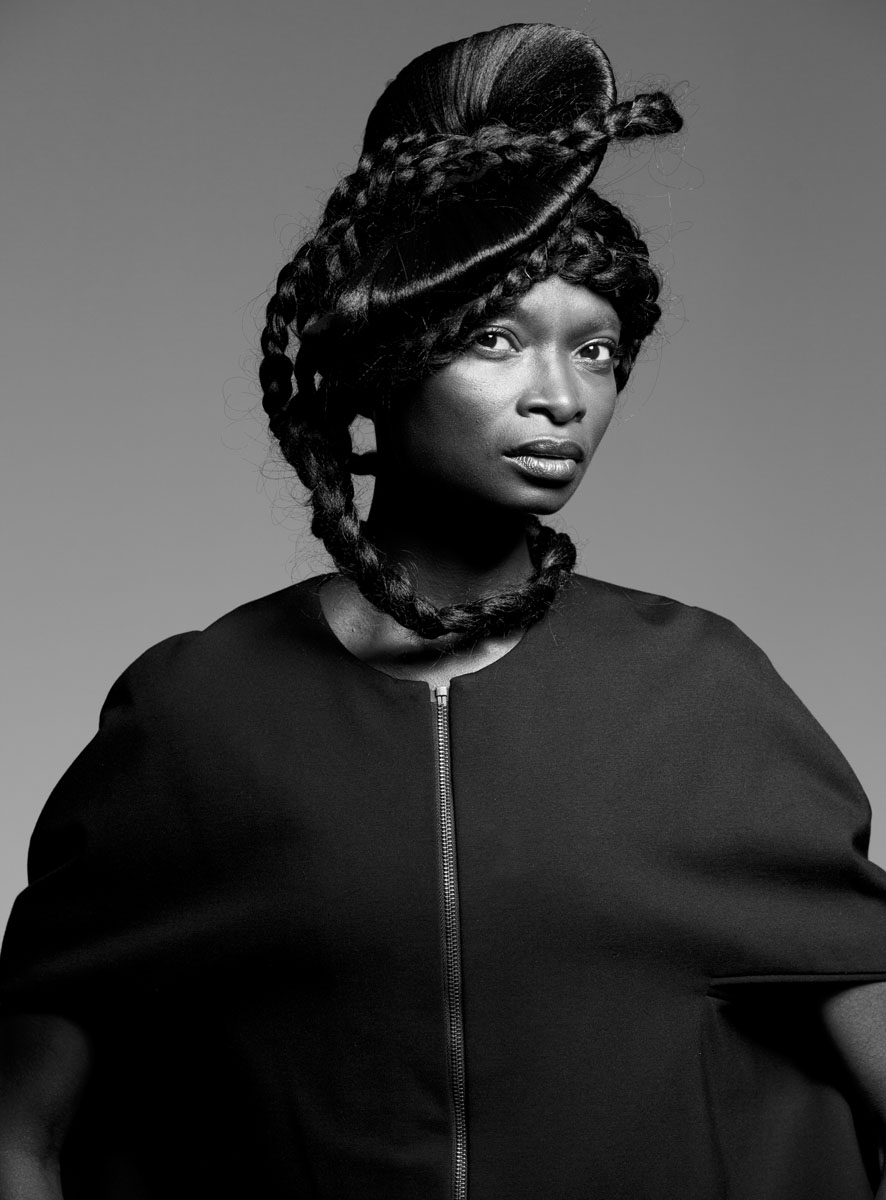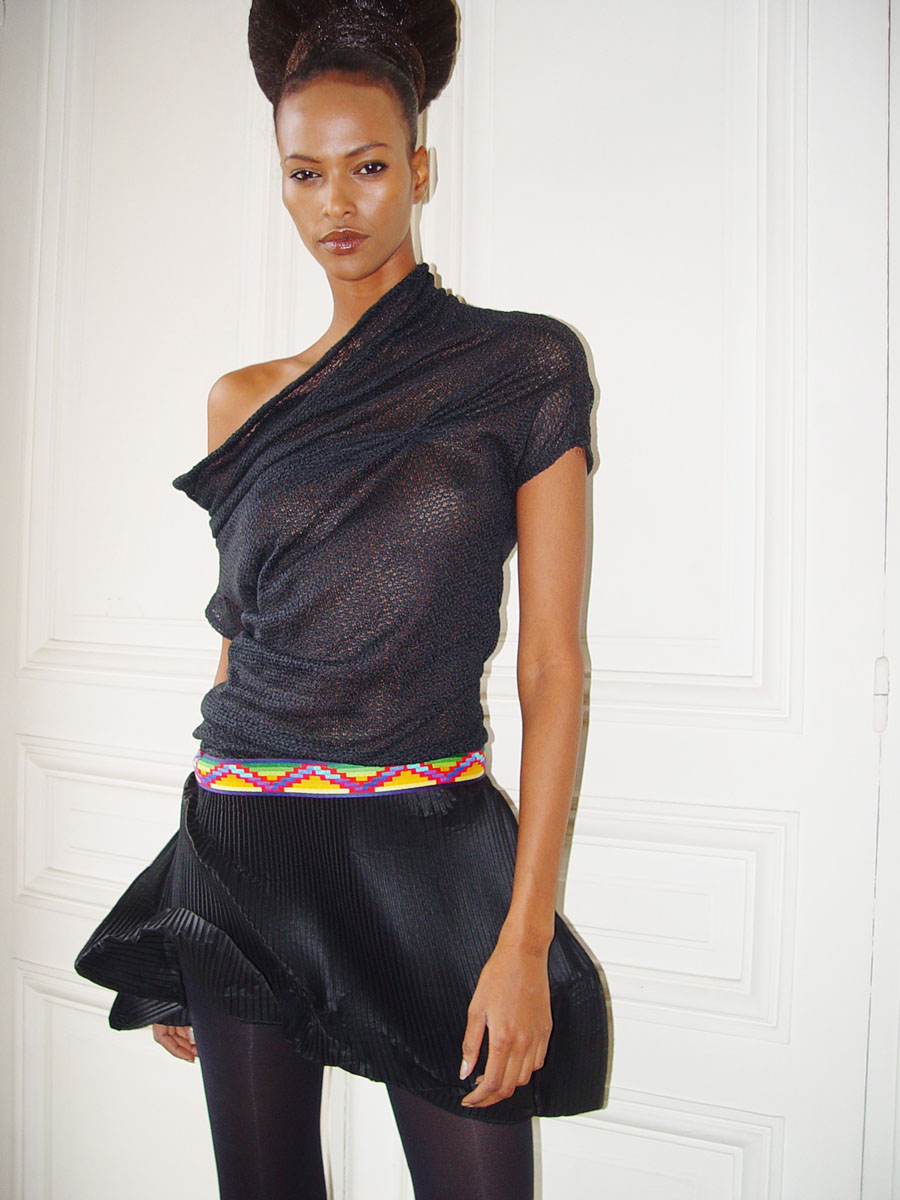Discover what went down at Nataal's More Aphrike salon with M.Bassy in Hamburg and hear from its founder, Bisrat Negasi
Nataal was recently invited to Hamburg by M.Bassy, a non-profit organisation dedicated to promoting contemporary African arts and culture. Founded by fashion designer Bisrat Negasi and creative duo Björn Lux and Frank Wache, M.Bassy hosts regular salons in an apartment setting that act as a spark for intelligent and inspiring exchange. Nataal took part in their More Aphrike event series, which invites voices from across the globe to share their African-inspired work.
Our evening began with an installation by M.Bassy using images and videos from some of Nataal’s treasured contributors. A film from Afropunk London produced by Lidz-ama Appiah showed next to This Hair Of Mine by hair stylist Cyndia Harvey and stills from photographers including Rudi Geyser, Kristin-Lee Moolman and Michelle Marshall. This visual treat set the scene for a talk by Nataal’s Helen Jennings and Melody Micmacher about the platform’s vision and projects to date, followed by Alassane Sy, who skyped in from Dakar to discuss his award-winning short film Marabout. Guests were then treated to a delicious vegetarian banquet and a moving performance by young Hamburg-based singer songwriter Emily-Mae Lewis. It was a truly magical night of conversation, encounter, music and gastronomy.
Here Helen gets cosy with M.Bassy’s soulful leader Bisrat for a chat.
HJ: So what’s your story?
BN: I was born in Asmara, Eritrea but by the age of six my family were forced to leave the country because of civil war. My parents supported the independence fighters so once the Ethiopian government figured that out, we had to go. It was a two-year journey hiding, fleeing and arriving in Germany, first to Hanover and then Hamburg. After school I went to Italy and then came back to Germany to study architecture but when I met (legendary Malian designer) Lamine Kouyaté I decided to be a fashion designer. I moved to New York and then Paris, where I launched my label, Negassi, in 2004. I was lucky to have Yasmin Warsame and Debra Shaw walk in my first show.
HJ: When did you come back to Hamburg?
BN: That was in 2007. By then I was also working as a costume designer and seeking to create my own format away from the fashion circus and craziness. Now I have found a way to create an exclusive and sustainable atmosphere around the brand. I have a clientele that appreciates coming to my home for an individual consultancy and some quality time, which is great for them and for me.
HJ: I love your flattering cuts and feminine shapes. How would you describe your aesthetic?
BN: I mix draping and tailoring using high quality fabrics such as cashmere, silk and wool. The look is classic with a twist, which means you can wear one piece from day to night. Some items are also multi functional and can be worn upside down or inside out. It’s important to me that my clothing helps women look and feel their best.
HJ: What inspired you to begin M.Bassy?
BN: I wanted to shine another light on Africa. I say that very carefully, and M.Bassy is only a tiny step, but in the mainstream Africa always has a negative image connected to poverty, war and famine. And in Hamburg the African community is very small. So it felt necessity for me to show how diverse Africa really is. Eritrea is only a little country of 6 million people but it alone has nine languages, each with different traditions and cultures, so just imagine 54 countries. That was the start of the idea. I wanted to present Africa through my own eyes and to surprise people.
HJ: The M.Bassy venue is absolutely stunning, with its tall ceilings, raw walls and antique tiled stoves. It feels like a home from home.
BN: Yes when I found it I knew it was the perfect place. Our first event in February 2016 was with Debra Shaw, who performed her debut EP and talked about her modelling career. M.Bassy started out independently but we have since received some government funding from Kulturstiftung Des Bundes.
HJ: What have been some other highlights since then?
BN: There has been so many and the format changes each time. We had a concert by Sway Clarke. IAM magazine presented photography from Roger da Silva. Patrice Bart-Williams talked about his music and work in Sierra Leone. Le Marche Noir explained their second hand clothes concept. Melanie Raabe did speed dating with African literature. Anja Gering explored post Apartheid lifestyle in Joburg. And Karl Hector & The Malcouns had an unplugged session. It’s been beautiful to share different kinds of moments with people.
HJ: Who comes along to your salons?
BN: For us the goal is to mix everybody up – all ages, nationalities and professions – and for it to be as diverse as possible. Because it’s an apartment, we keep the numbers small and you can really feel this intimacy and energy. There are no borders so everyone talks to each other even though they don’t know each other, and their reactions to each event is always special.
HJ: What are your plans for the future?
BN: The nomad in me wants to do M.Bassy pop ups in other cities. To think, we can bring love everywhere and get love from everywhere. Call me a dreamer but it would be wonderful to let love rule, especially nowadays.
M.Bassy’s next More Aphrike, from 24 February to 18 March, features West African-international cinema by Andrew Dosunmu and Andy Amadi Okoroafor
Film Delmar Mavignier
Photography Kristine Thiermann
Words Helen Jennings
Visit M.Bassy










